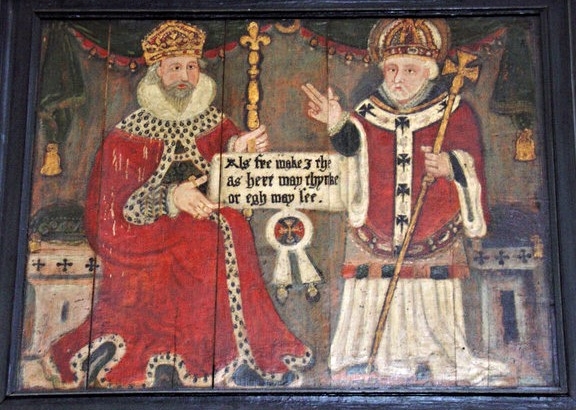Of the People, by the People, and for the People: Founding a Representative Government in America, Not Hereditary Succession

Essay Read by Constituting America Founder, Actress Janine Turner
“…for it is impossible to discover superiority of right in any family, by virtue of which hereditary government could begin… It is one step toward liberty, to perceive that hereditary government could not begin as an exclusive right in any family…With respect to the first of these heads, that of a family establishing itself with hereditary powers on its own authority independent of the nation, all men will concur in calling it despotism…It operates to preclude the consent of the succeeding generations, and the preclusion of consent is despotism.” – Thomas Paine, Dissertation on the First Principles of Government 1795.
While the King and Parliament were visible primarily through their Colonial Governors, they had been directly visible to Paine in England before his emigration to the colonies. Paine was familiar with hereditary succession and was opposed to that idea, as he later wrote in the Dissertation quoted above. King George III was the grandson of King George II; George III might have been George IV had not his father died in 1751, nine years before his grandfather died, making George III the heir to the Throne. George III ascended to the Throne at the age of 22.
The impact of the laws of Parliament and the King on the ordinary British citizen had encouraged Paine to publish his pamphlets critical of the “abuses and usurpations” enforced on British citizens there. Thus, while he had minimal direct knowledge of the American colonies’ political affairs, he had significant direct knowledge of the impact of the British political policies in Britain, giving his words in the colonial pamphlets a great deal of significance. The timing of his arrival and his ability to communicate effectively to the colonists while they were in an excellent position to declare independence were the keys to the impact his “Common Sense” pamphlet had on the colonies.
The first two chapters of Common Sense focused on the purpose of government, the English Constitution, the monarchy and hereditary succession, and how those factors made living under British rule difficult for all and intolerable for some. His pitch was emotional at a time of heightened emotions in the American colonies. On the first page, he states that “government even in its best state is but a necessary evil; in its worst state an intolerable one. We furnish the means by which we suffer.”
He states that “the design and end of government is freedom and security.” Paine argued that the British government was filled with both “monarchical and aristocratical tyranny.”
Paine presents scathing attacks on the monarchy with scriptural references very familiar to the colonists. Christian faith and tradition were strong in the colonies and all knew of the chaos of the era of Israelite Kings and how, in just three centuries, that chaos resulted in the destruction of the Temple and the exile. He states that “monarchy is ranked in scripture as one of the sins of the Jews.” He differentiates King David from other Israelite Kings in that David “was a man after God’s own heart.”
He attacks hereditary succession, stating that “all men being originally equals, no one by birth, could have a right to set up his own family, in perpetual preference to all others forever.” He observes that usurpation, rather than selection by lot or by election, has been the most common method of ascension to the throne, and that original sin and hereditary succession are parallels. The then-common idea that hereditary succession preserves a nation from civil wars is quickly debunked. Monarchy and succession are a form of government leading to “blood and ashes.”
In Chapter 2, Paine leaves some hints for the institution of a republic and for the necessity of a “house of commons” in the future nation.
In Chapters 3 and 4, Paine turns toward the present state of affairs in the American colony. Here he builds a strong emotional case for “Independency.” He states that the 1775 British attacks on Lexington, Concord, and Bunker Hill made all attempts at reconciliation void and that “the period for debate is closed; arms must decide the contest.” He first supports the economic and trade arguments for separation. The British attempts to “tax without representation,” to reimburse the costs of British protection of the American colonies, are for the benefit of the colonies’ exclusive trade arrangements with Britain. By declaring independence, the American colonies would then be an open trade port to all nations.
In addition, severing the exclusive alliance with Britain would eliminate the risk that Americans might be enlisted into wars with Spain and France. Paine notes that only about 1/3 of the colonies are inhabited by English descendants, but that people fleeing tyranny from all of Europe have sought a new life in America. He states that “everything that is right or natural pleads for separation.”
Paine focuses on the fact that April 19, 1775 forever destroyed the ability of the colonies to reconcile with Britain. He asks, “can you still shake hands with the murderers?” He quotes Milton, “never can true reconcilement grow where wounds of deadly hate have pierced so deep.” Repeated petitioning has consistently failed. He observes that “there is something absurd in supposing a continent to be perpetually governed by an island.”
Paine makes a strong argument that laws, made by the people of America, should be King, not laws made by a King and Parliament thousands of miles distant, laws that reflect the King’s premise that “you shall make no laws but what I please!” He presents a plan for government after independence, a plan for representative government that was unlikely to be adopted, but that may have had some influence on the Declaration of Independence and the Articles of Confederation. Thomas Jefferson may have made note of Paine’s suggestion for “a mode of government that contained the greatest sum of individual happiness” as he wordsmithed the Declaration of Independence.
Paine makes the case for America’s ability to build, supply, and maintain a Navy equal or superior to Britain’s Navy; that was possible due to the abundance of natural resources in the large, largely unexplored nation. America’s abundant natural resources also could be exported to all nations in exchange for gold and silver.
He argues that the current infant state of the colonies is advantageous for independence; it is easier to unite a small nation now than a large one later. An interesting point he makes about equal representation, which ultimately led to two Senators per state, resonates today; specifically, that unequal representation of large and small counties in Pennsylvania could have resulted in Pennsylvania’s laws being decided by only two counties in the state.
While the elected representatives to the Continental Congress were focused on applying reason and diplomacy to resolve the dispute with England, Paine understood the passions of the citizens and used his pen and press to stir their emotions to pressure their representatives to choose independency rather than reconciliation.
 Ron Meier is a West Point graduate and Vietnam War veteran. He is a student of American history, with a focus on our nation’s founding principles and culture, the Revolutionary War, and the challenges facing America’s Constitutional Republic in the 20th and 21st centuries. Ron won Constituting America’s Senior Essay contest in 2014 and is author of Common Sense Rekindled: A Rejuvenation of the American Experiment, featured on Constituting America’s Recommended Reading List.
Ron Meier is a West Point graduate and Vietnam War veteran. He is a student of American history, with a focus on our nation’s founding principles and culture, the Revolutionary War, and the challenges facing America’s Constitutional Republic in the 20th and 21st centuries. Ron won Constituting America’s Senior Essay contest in 2014 and is author of Common Sense Rekindled: A Rejuvenation of the American Experiment, featured on Constituting America’s Recommended Reading List.
Sources:
Stamp Act – Fact, Reaction & Legacy (history.com)
Britain Begins Taxing the Colonies: The Sugar & Stamp Acts (U.S. National Park Service) (nps.gov)
What Was the Olive Branch Petition? – History of Massachusetts Blog
Paine, Thomas. Common Sense. New York: Fall River Press, 1995
John Adams looks back on Thomas Paine’s Common Sense, autobiography, early 1800s (americainclass.org)




Join the discussion! Post your comments below.
Your feedback and insights are welcome.Feel free to contribute!